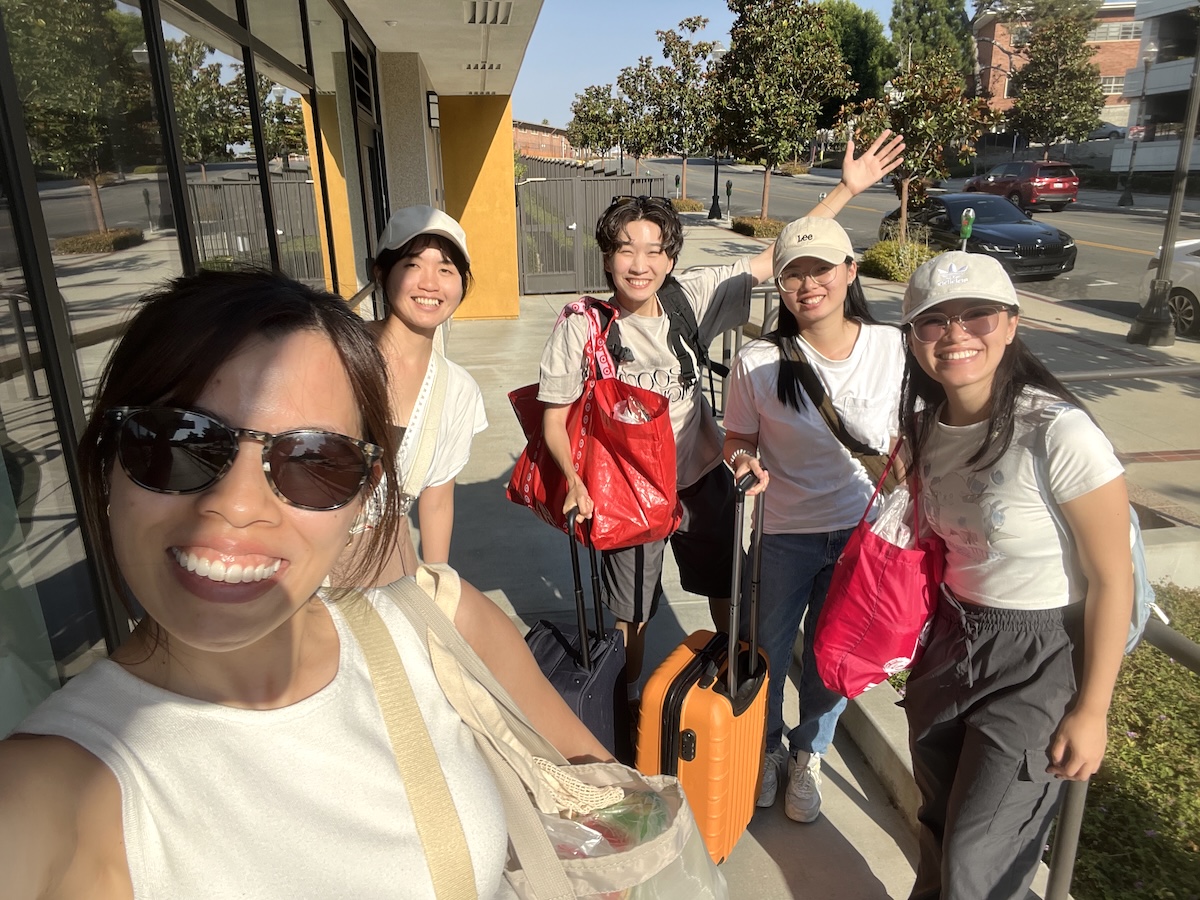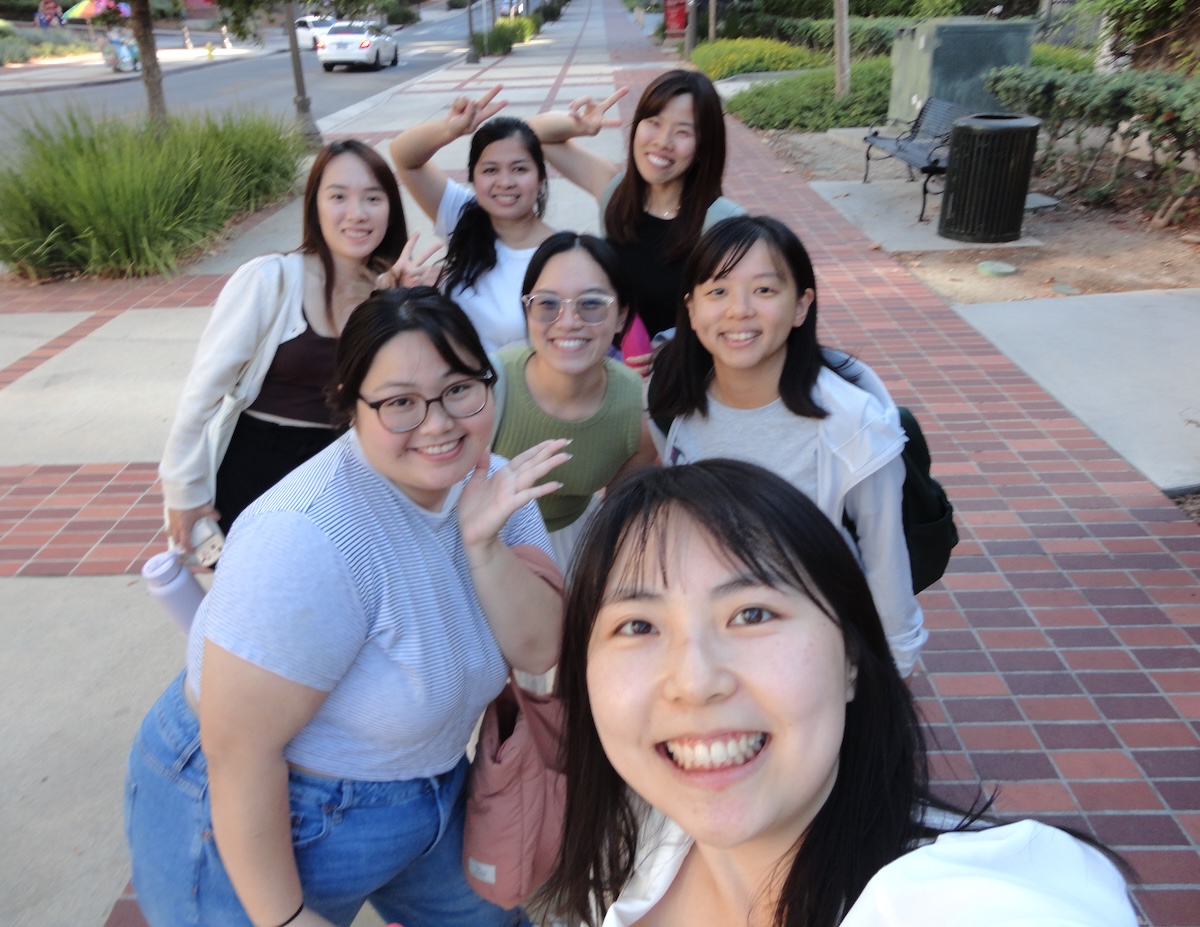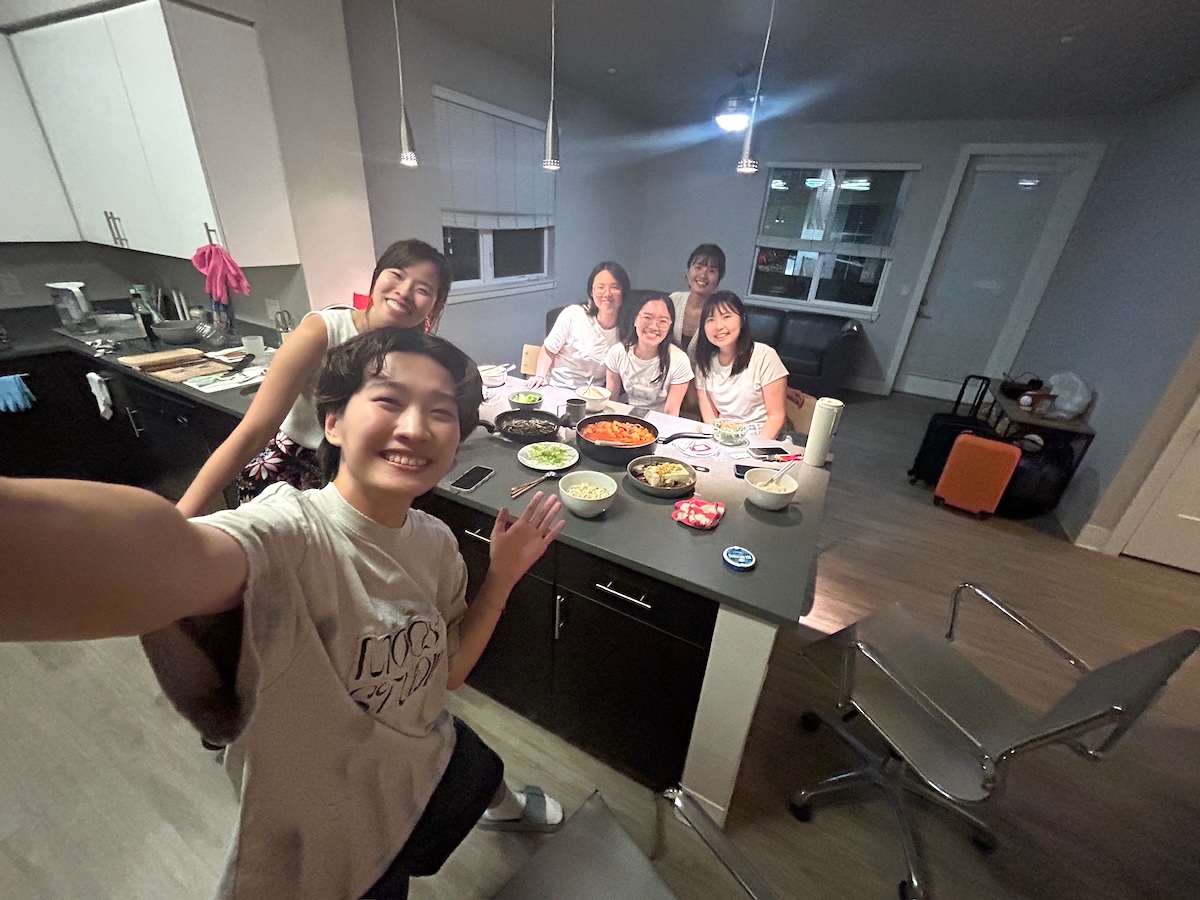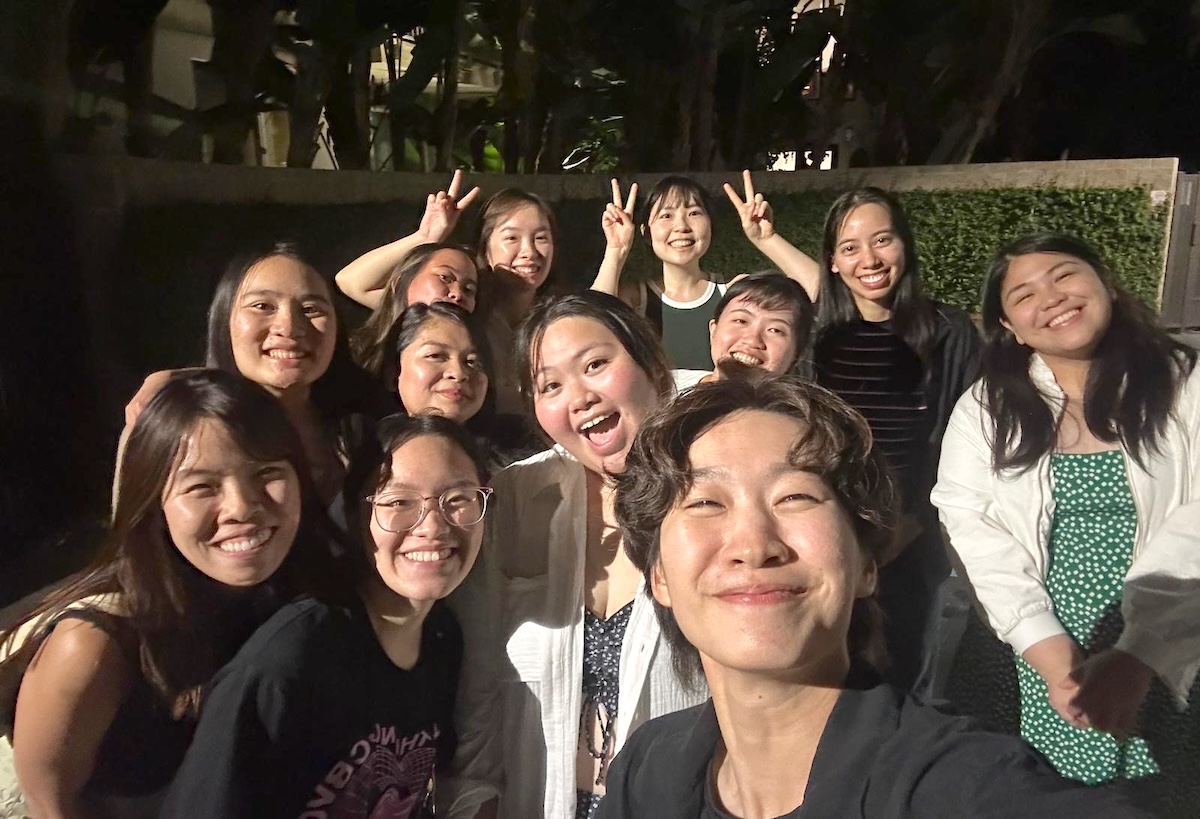Student Blog
Beginnings and Endings
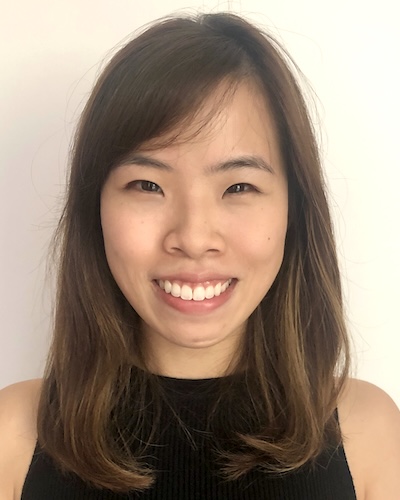
Taking my first exam, more than a decade later ⟩
November 12, 2024, by Tanya
Beginnings and Endings Classes International
The anxiety that hit me on the morning of my first exam in a long time was one I had not experienced, one that felt so foreign. Perhaps it is because I was not used to it as it has been a while, and not to sound dramatic but it felt worse than going for a job interview or presenting in front of a large audience. Everything felt so uncertain and unexpected, and I, as a person who valued control and preparedness, felt quite lost and nervous.
Even the platform that the exam was on seemed foreign, with the entire exam being digitalized. This is a stark contrast from the days when my biggest worry was that I had multiple sharpened 2B pencils to shade the correct option in a multiple-choice exam. I was amazed that the paper could be downloaded before the commencement of the exam, and the exam software came with tools such as the highlighter and timer visible on your screen.
I was overcome with a sense of relief mixed with anticipation of how I performed once I saw the green screen notifying me that the submission was successful on my screen.
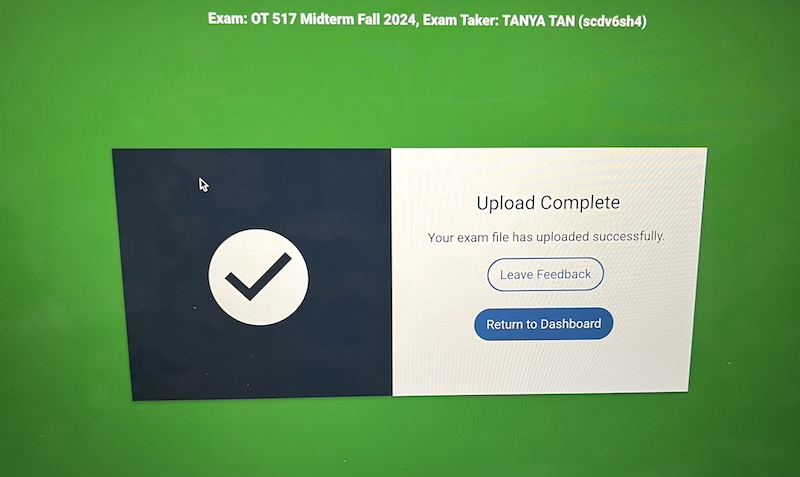
After my first Sensory Integration mid-term exam — taken with permission from Dr. Gunter upon submission
Given the option, I would have much preferred to have written a paper instead, as this would have allowed me to weave in my thoughts and opinions supported by evidence. When I reflected on the entire experience, I would say my anxiety stemmed from the unfamiliarity of the advancement in technology as well as the entire examination process that felt so foreign rather than the actual content. And this was yet another way for me to learn how to adapt to changes and move with the times.
If you have not been on the academic journey for some time, here is what I did to help deal with these changes. It did not remove the nerves completely, but it helped me settle into it faster.
1. Having stationaries that help with note-taking
If you are like me and prefer to organize and write down notes on paper to visualize the information learned, it will be helpful to bring some writing implements or sticky notes that you are used to back home.
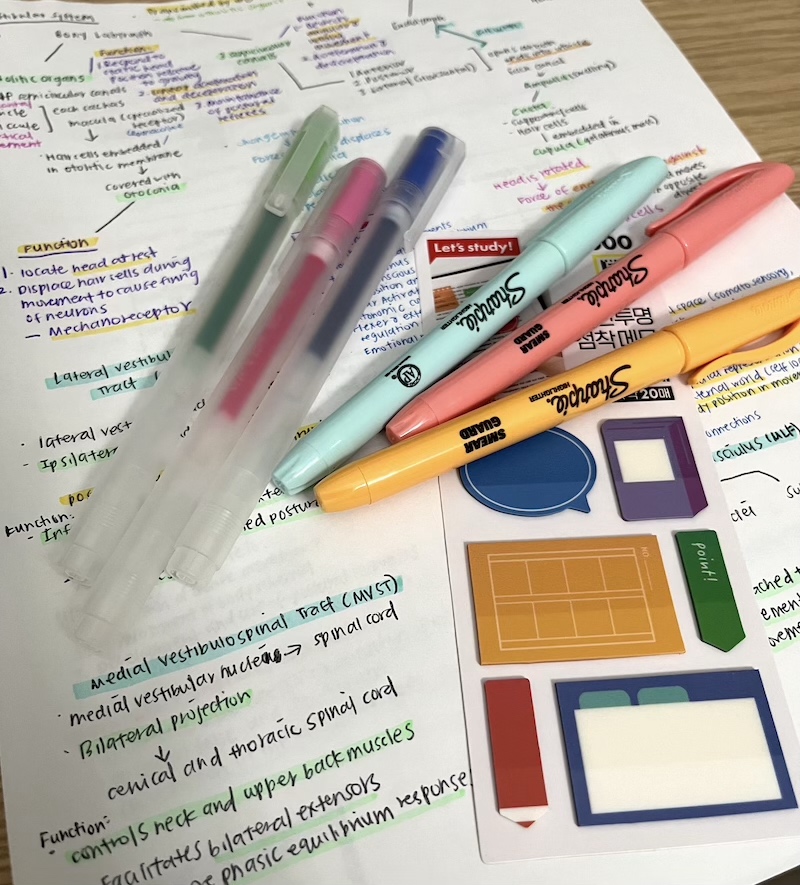
Some of my writing implements that I brought over from Singapore
2. Follow your usual sleep pattern
Hearing some of my classmates share about the later times they sleep and how they feel more efficient or productive, made me consider this choice and attempt it. I usually head to bed by around 11 pm and decided to try staying up till 1 am. Sad to say, this was counterproductive, and I was less efficient and felt even more lethargic over the next 2 days. Know your body system and do what is best for you, you do not have to change your routines despite adopting a new role.
3. Enjoy leisure amidst the exams and assignments
Along with midterms also come assignment submissions, this can be a lot, and you may feel overwhelmed by it. It may feel that every minute should be channeled to studying or reading another article, however, engaging in leisure does clear your mind and refreshes you. It is the little things that can have a greater impact.
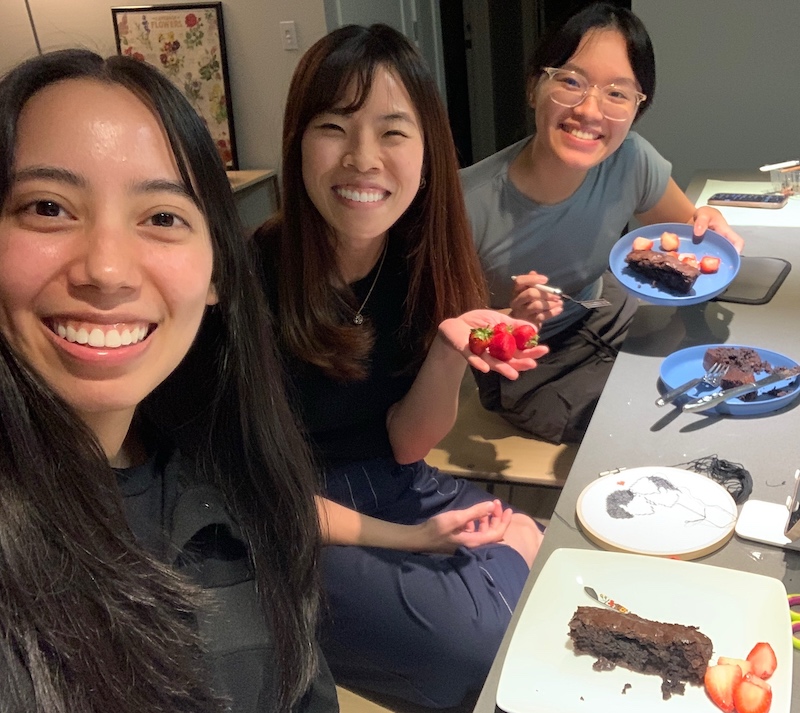
Here is a picture of my housemates and I enjoying the brownies that we baked. It took longer than expected but it allowed us to chat, laugh, and relax while enjoying the process.
4. Planning ahead to ensure you have sufficient groceries
I usually travel on the bus to get my groceries over the weekend, as it is nice to browse and select my items. However, it can be a little time-consuming when it is ‘crunch time’ due to the additional time spent on commuting. It is helpful to plan and purchase additional groceries with a longer shelf-life to last for the upcoming week. Another helpful way is to purchase your groceries online. There are various stores online, such as Instacart, Weeee, etc that are helpful when other factors are deterring you from going out.
5. Be a little more courageous
That’s what I tell myself when I do not understand the concepts or have questions about the topic being taught in class. It could be my personality or how I am used to academic lessons back home that make it more challenging for me to ask questions. However, I would encourage you to raise your hand and ask, or go to an office hour appointment to clear the doubts that you may have. If you don’t, the person that is at the losing end will eventually be yourself. As they say, knowledge is power, so do not leave the module with an unanswered question.
Despite various deadlines that you need to meet, it is important to stop and pause, and also look at your surroundings as you commute on the shuttle bus or to your apartment. LA has very beautiful sunsets and skies, but you will miss it if you are just focused on thinking about your to-do list.
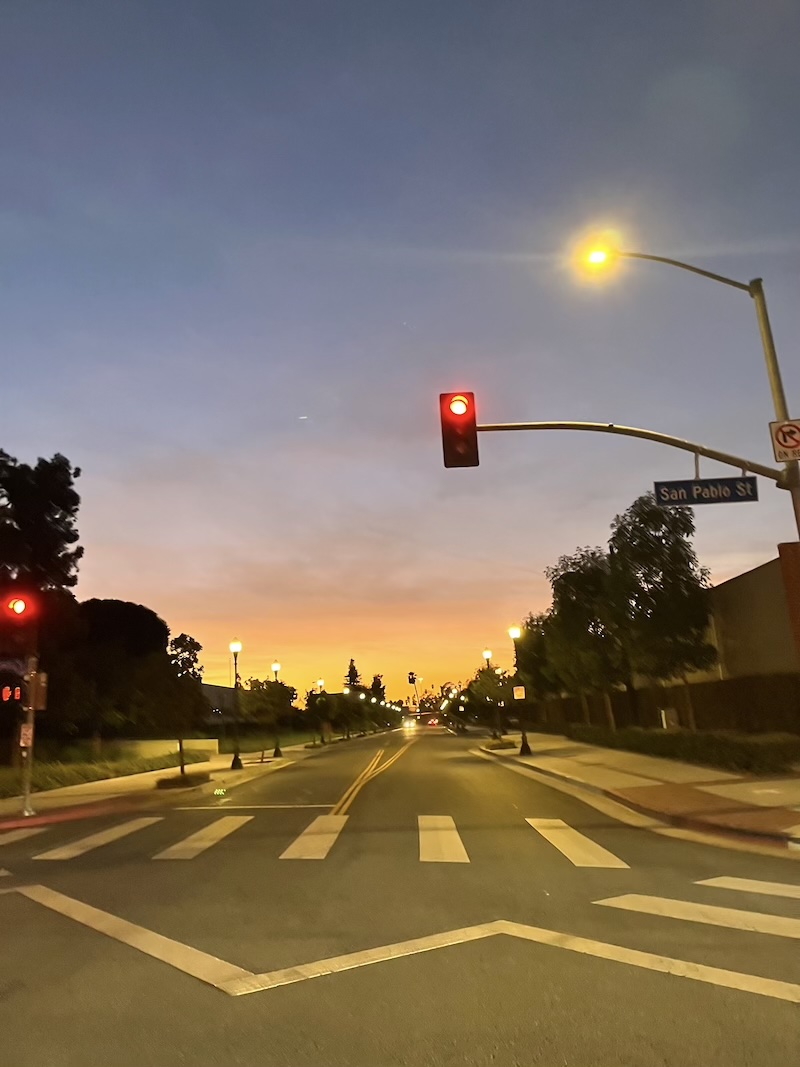
Sunset on the way to an evening class
⋯
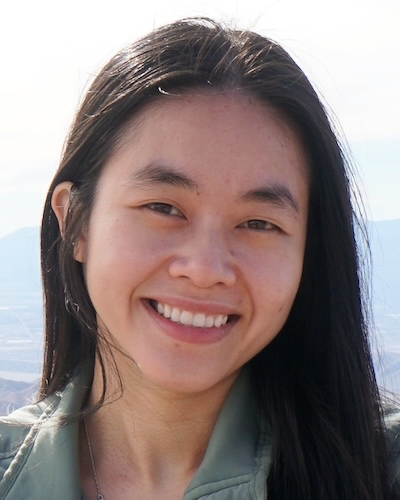
My Mental Health and How It Led Me to OT ⟩
October 22, 2024, by Dana
Beginnings and Endings First-Gen
As an immigrant, the idea of the “American Dream” was the main path that every immigrant aimed to achieve. All my life, I was told to keep learning and going to school to achieve higher education so that I can make more money and live that “American Dream”. So, being in an Asian immigrant household, I was expected to become a doctor, lawyer, engineer, or entrepreneur of some sorts in high positions. My first time ever where I thought of a career path for myself was in middle school. Low and behold, I thought of becoming a lawyer. I had this immense confidence that I could argue anything and everything with those around me whenever I disagreed with them. However, that did not last very long when high school came along and my confidence and mental health plummeted.
High school was an interesting time, but it was also a traumatizing time for me that is buried all the way in the back of my mind. I was not given sufficient guidance nor opportunities to explore what I potentially wanted to do in the future. It was a time where academic excellence was ingrained in my mind by my parents and teachers. Excelling in classes and engaging in educational organizations were the priorities of what other people wanted for me. It took me some time to process, after the fact, that that was one of the causes of my mental downfall. In addition, a huge life event of my mom passing away during my sophomore year created even more mental turmoil. As much as I expressed what was happening to me in my high school, they wanted me to focus on strengthening my college applications with grades, standardized tests, and personal development. Ironic because the only personal development my high school allowed was to develop our academic skills. With no guidance there, I fought to find my own path.
Getting past the grief of my mom being gone was what felt like the longest mental journey of my life. However, her passing sparked my love for healthcare. There were some things I wished the healthcare system could have done for her to increase her quality of life by maintaining her independence and promoting occupations in which she could still engage in. Watching her lose all her ability to do things for herself was difficult as a teenager because I had seen her do almost everything for our family. Because my high school wasn’t helping me explore career paths, I took it upon myself to research healthcare professions that aligned with my values and goals of helping people with terminal conditions have some independence and internal satisfaction with what they can do while they are still alive. With extensive research, I came across Occupational Therapy.
I didn’t follow the traditional path that was expected of me, but I found something better: a career that aligns with my values, one where I can help others maintain their dignity and independence, just as I once wished for my mom. Occupational Therapy became more than just a profession — it became a way for me to honor her, and in some ways, to heal myself.
⋯
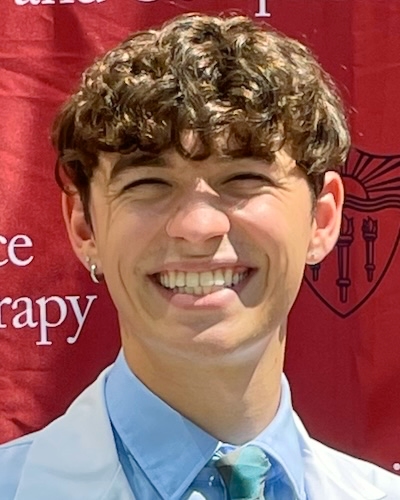
A Legacy of Hard Work, Perseverance, and Occupation ⟩
September 27, 2024, by Mason
Beginnings and Endings School/Life Balance
Hi everyone! In my introductory blog post, I talked to you all about why I chose to take on the challenge of becoming an occupational therapist. In case you missed it, let me give you a refresher. My mother is a pediatric occupational therapist and has served various populations of children with special needs and developmental disabilities for over 30 years. Growing up around my mother and watching her treat and impact the lives of the children she worked with sparked my passion and lifelong goal to help others. My mother always taught me that no matter what you do, you should leave the world better than you found it, and use your energy, health, and opportunities to help those who have less or do not have the same luxuries. Throughout this program, there have been many times when I doubted myself and my abilities to succeed as a student, clinician, and overall individual. But in those moments I have always had my mother and her lessons to support me.
My mother has always been a key pillar of support in my life. However, my mother was also not shy about pushing me to do my best. Growing up, my mother always had one rule: it was okay to fail as long as you tried your best. In every moment of failure or setback throughout my college years so far I always tried to remember that simple lesson because I knew that my best was within reach if I worked hard and put in the effort. It wasn’t easy to move across the country to a state I had barely visited, work multiple jobs to support myself throughout my education or start a full graduate course load while my friends moved on to full careers after their undergrad. College is not an easy challenge, and it’s not meant to be. After 4 years of strong effort, I still find challenges and overwhelming moments every other week. But I know I can get through it because I have the people around me that make me feel supported.
In a funny way life always comes full circle. This year to my utmost pride, pleasure, and enthusiasm my mother started a new journey of her own and returned to school to earn her post-professional doctorate in occupational therapy. Despite not being in school for almost 30 years and diving into an educational landscape that has changed fourfold, she’s taking on this challenge to grow and better herself, and I couldn’t be more proud. As children, you always view the relationship you have with your parents as a one-sided transaction. They teach you, they support you, and they help you grow to dreams and goals they know you can accomplish. However, as you inevitably grow up and expand in your ability to understand those around you, you begin to realize how much you impact their lives as well. We can teach our parents, we can help them grow, but most importantly we have the ability to support them amid the vulnerability that makes change so scary.
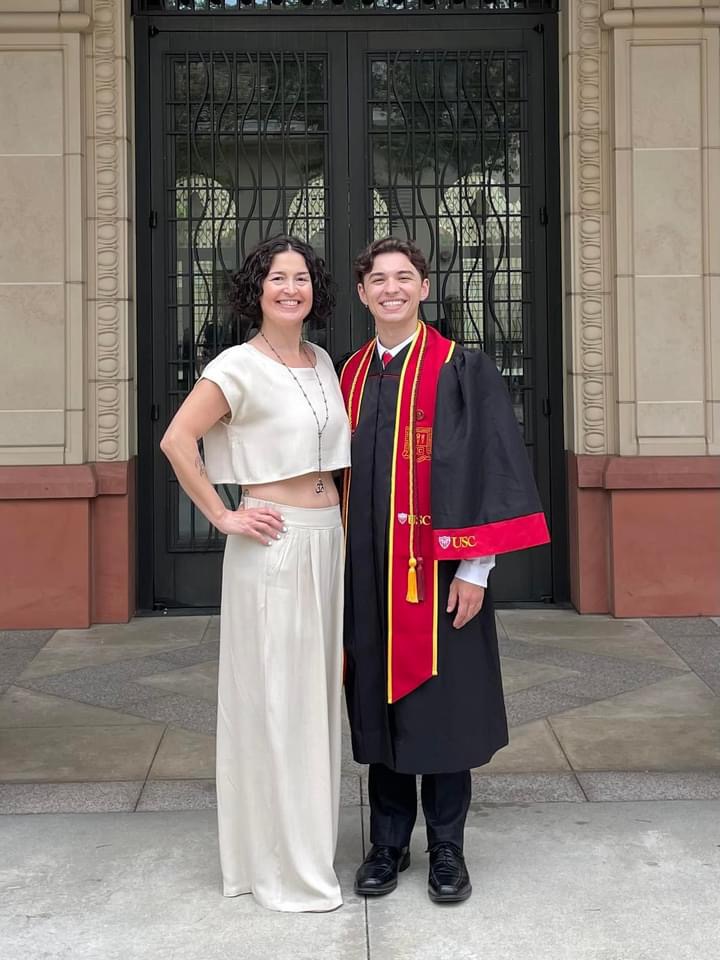
My mother inspired me to become the person I am today, and today I’m lucky enough to inspire my mother to reach the exact same potential she has always seen in me. So when you’re reflecting on the challenges and obstacles that stand in your way, don’t ever forget about the people in your life that lead you to greatness. Cherish those who have always supported you and take any opportunity you can to return the favor by supporting them.
That’s all for now, and remember to Fight On!
⋯

From Worker to Student: A New Occupation ⟩
September 26, 2024, by Tanya
Beginnings and Endings Community International Life Hacks Living in LA School/Life Balance
It is week 3 of school and perhaps with the exploration of Occupational Science, it made me reflect about the current journey I’ve chosen to embark on; a new occupation. I am no longer a working adult but one who is back in school — an adult student. It has been approximately a month since I said goodbye to the familiar, the known and the expected. Things are no longer as familiar, and navigating through this change has not been the easiest, to say the least.
I have stepped into the unknown and the unfamiliar in the decision to pursue the Post-Professional Master’s degree here at USC Chan, and if I were to use the Person-Environment-Occupation (PEO) Model (Law et al., 1996) to frame my life, you could say that I am still learning to maximize the fit to attain the same occupational performance I had back home. There is not just a literal change, in the physical change in environment, but also a change in my social environment. Social supports that I could turn to immediately had a 15 hour time difference. Even though this is not the first time living alone in a foreign country, it does not get any easier. There are some days I still get teary looking at pictures or Instagram videos and wish I could teleport home to be part of a special event, to comfort a friend or just to get a physical hug from a loved one. Leisure activities which I could engage in frequently are harder to access as I do not drive, or are things that I could not bring over (e.g., my sewing machine).
Even the most simple things require unlearning and relearning — take the metric systems — I am still learning how to convert Fahrenheit to Celsius, Pounds to Kilograms and Miles to Kilometres. It does get better with practice and of course, consulting with Google Converter, especially when I am at the grocery store, has been such help to me. Exploring the transportation systems might be a little tricky, but I am thankful that I got the chance to explore with my course mates, who are becoming a different sort of support system.
Having a new occupation as a student comes with new expectations and responsibilities. I used to read journal articles that I received from my monthly BJOT subscription or when I was reading up on the evidence of interventions that I would like to use. However, being a student means reading and trying to synthesize the contents of the articles for each module that you take. Living alone also means that that are other things you need to manage and set aside time for, such as meal-prep, household chores, figuring out how the dryer works and grocery runs.
Here is another picture of us on our longest day of classes and testing out a classmate’s new digital camera
Though the Occupation and Environment has changed, one thing that remained constant is the Person (that’s me). The changes might seem overwhelming initially but your abilities that enabled you to navigate the challenges, difficulties and new seasons in your life in a place of familiarity and comfort do not change amidst the change in the environment. The routines that you have created for yourself back home can also be replicated here — it just takes a little time to figure and analyse what is better and suitable. I’ve resumed my curiosity in cooking and explored the different dishes and cooking hacks on social media. This has not only provided me with affordable and delicious meals, but it has been a nice and relaxing activity and a way for me to connect with my housemates.
Being a planner, I have plans to crochet and hit the gym with my house/course mate Kate — we will get to it soon! Being away makes you grow as an individual as you reflect and learn to see things from a different perspective — who knew that just having dinner and chatting by the pool with friends is something so enjoyable and refreshing, an activity that I hope will be part of my new routine. Change is hard but it can also be an experience that will shape, develop and make you a better OT as you view things from new and different perspectives. It is also important to be intentional, not just here, but with the people back home, technology in this case is truly a blessing. Being 8811 miles away does feel shorter with the texts and calls.
One thing I am thankful for are my course mates, they make home feel a little less far. My new social environment, but one I am thrilled to share the remaining year with as we learn, laugh and eat together.
Here is a photo at the end of the first week of school with some of my coursemates and housemates. What is missing from the photo is the food people cooked — amazing cuisine from Taiwan and Philippines!
Stay tuned if you are interested in finding out what my remaining year will be like as a new adult student — I personally know it will be an amazing one and one that I will proudly say that I have maximized the PEO fit at the end of it.
Reference
Law, M., Cooper, B., Strong, S., Stewart, D., Rigby, P., & Letts, L. (1996). The Person-Environment-Occupation Model: A transactive approach to occupational performance. Canadian Journal of Occupational Therapy, 63(1), 9–23. https://doi.org/10.1177/000841749606300103
⋯

The Transcontinental Bachelor’s to Doctorate Student ⟩
May 24, 2024, by Mason
Beginnings and Endings
If you asked the average 17-year-old kid if they wanted to commit to a 6+ year program and move across the entire country they would probably look at you like you are crazy. This was the exact reaction I received when I told my peers, teachers, and even family members that I had decided to commit to USC Chan’s Accelerated Bachelor’s to Doctorate program as a senior in high school. Of the many concerns that people had around me, the biggest question people asked me was “Are you sure this is what you want to do with your life?” I remember that 17-year-old me would always get so bothered by this question, I couldn’t possibly understand why the people around me had so many concerns about me going into this program. Looking back on these memories almost 4 years later, as a more mature and grown person, I can say that I finally understand why people had these concerns. Choosing to go to college is one of the biggest decisions that people will make in their lives. It is an opportunity that will shape your career and your opportunities, and most importantly it will shape you into a hardworking adult capable of building a life for yourself. So, it’s understandable why those around me were hesitant that I made this decision so early on and so young. However, let me tell you a little bit more about the transcontinental Bachelor’s to Doctorate student and why after 4 years I am still just as passionate, driven, and heart set on becoming the best OT I can be.
I grew up in Sandy Hook, CT, a small east coast town that for most of my childhood life you would probably have never heard about. That is until December 14, 2012, when my town was victim to a historic school shooting that rocked the nation. Although the lived experience of this tragedy is not my story to tell, what I will share is the power and passion of the community I grew up in. I grew up in a town of resilience, made up of families, educators, and activists who set out to better the world around them. In the face of the greatest tragedy one could experience, I witnessed the greatest display of humanity and community that my town could offer. Even now, almost 3,000 miles away, I still remember these values of kindness and community and let them guide my actions.
My mother is an occupational therapist who works in the pediatric setting. Growing up and watching my mother practice taught me not only the importance and value of occupational therapy for children but also the understanding that every individual’s occupations have meaning. Whether it be a child playing with toys, an athlete competing in their sport, or me making my favorite latte in the morning, there is an inherent beauty in the meaning that comes from doing what we love. In the face of disability, illness, and life changes people lose that ability to do what they enjoy. My entire passion in life has always been to help those around me. So why at 17 did I choose that I wanted to be an occupational therapist? Because I know occupational therapy in its simplest form is helping people live their lives meaningfully. Because I know that as an occupational therapist, I can change the lives of my patients for the better.
Looking back, if I had the chance to talk to that 17-year-old high school student, contemplating moving thousands of miles from home to come study at USC, I wouldn’t change a thing. So to all those considering this program or any program for that matter, here is my biggest piece of advice. Find the passion that gives you meaning, and that is strong enough to drive you across the country to achieve your dreams. Although many will doubt you in life, let your passion drive you towards your goals and work hard to achieve them. Fight on!
⋯






